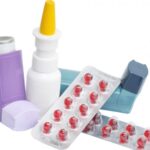How To Reduce Side Effects Of Medicine (13 Helpful Tips)

Medicines are essential tools in treating diseases and alleviating symptoms. However, like any other medical intervention, they can cause side effects that may range from mild to severe. Side effects can occur due to various reasons, including an individual’s genetic makeup, existing medical conditions, and interactions with other drugs.
The goal of this article is to provide detailed information on how to reduce the side effects of the medicine.
1. Understanding Medicine Side Effects
The first step in reducing the side effects of medicine is to understand what they are and how they occur. Side effects are unwanted or unexpected symptoms that occur after taking a medication. They can range from mild, such as nausea or headache, to severe, such as anaphylaxis or liver damage. Medications can cause side effects by various mechanisms, including:
• Interfering with normal body functions
• Stimulating or suppressing the immune system
• Interacting with other medications or foods
• Producing toxic metabolites
It is essential to remember that not everyone experiences side effects from medications, and the severity of side effects can vary from person to person. Moreover, some side effects may be related to the medication’s intended effect, such as drowsiness with antihistamines or constipation with opioids.
2. Consult Your Doctor or Pharmacist
If you experience side effects after taking medication, it is crucial to contact your doctor or pharmacist immediately. They can help you determine if the symptoms are related to the medication or another underlying condition. Your doctor may suggest reducing the dosage, changing the medication or providing medication to counteract the side effects.
3. Take Medication as Prescribed
One of the most important things you can do to reduce the side effects of medicine is to take it as prescribed. Follow the instructions on the label, and do not take more or less medication than prescribed. Taking more medication than prescribed can lead to an overdose while taking less medication may not provide enough relief and may lead to the medication’s failure.
4. Take Medication with Food
Taking the medication with food can help reduce stomach upset and other gastrointestinal side effects. Some medications can cause irritation in the stomach lining, leading to nausea, vomiting, and diarrhea. Taking the medication with food can help protect the stomach lining and reduce the risk of gastrointestinal side effects.
5. Stay Hydrated
Drinking plenty of water can help reduce the side effects of medication, especially those that affect the kidneys or bladder. Some medications can cause dehydration or increase urine output, leading to electrolyte imbalances and kidney damage. Drinking water can help flush out the medication from the body and reduce the risk of these side effects.
6. Avoid Alcohol and Tobacco
Alcohol and tobacco can interact with medications and increase the risk of side effects. Alcohol can interfere with the liver’s ability to metabolize medication, leading to an increased concentration of the drug in the body. This can cause the medication to be more potent and increase the risk of side effects. Tobacco can also interact with medication and reduce its effectiveness, leading to the need for higher doses and increased side effects.
7. Know Your Allergies
If you have a known allergy to a medication or any of its ingredients, it is essential to inform your doctor or pharmacist before taking it. Allergic reactions can range from mild, such as a rash or hives, to severe, such as anaphylaxis. Knowing your allergies can help your doctor prescribe medication that is safe for you and reduce the risk of allergic reactions.
8. Watch for Interactions
Medications can interact with each other and produce unwanted side effects. It is essential to inform your doctor or pharmacist about all the medications you are taking, including over-the-counter medications, supplements, and herbal remedies. They can help you identify potential interactions and adjust your medication regimen accordingly
9. Be Aware of Drug-Food Interactions
Some medications can interact with food, leading to increased or decreased absorption and effectiveness. For example, taking certain antibiotics with dairy products can reduce the drug’s effectiveness. Grapefruit juice can also interact with several medications and increase their concentration in the body, leading to an increased risk of side effects. It is essential to read the medication label and follow the instructions regarding food and drug interactions.
10. Monitor Your Symptoms
It is important to monitor your symptoms and report any new or worsening side effects to your doctor or pharmacist. Some side effects may develop over time or worsen with continued medication use. Monitoring your symptoms can help your doctor adjust your medication regimen and reduce the risk of side effects.
11. Consider Alternative Treatments
In some cases, alternative treatments may be available that can provide relief without the risk of side effects. For example, non-pharmacological interventions such as exercise, physical therapy, or cognitive-behavioral therapy can be effective in treating chronic pain without the risk of opioid addiction or side effects. It is essential to discuss alternative treatment options with your doctor to determine if they are appropriate for your condition.
12. Manage Stress
Stress can exacerbate the side effects of medication and increase the risk of adverse events. It is important to manage stress through techniques such as mindfulness, meditation, or deep breathing exercises. Managing stress can help reduce the physiological response to medication and reduce the risk of side effects.
13. Avoid Over-the-Counter Medications
Over-the-counter medications can interact with prescription medication and increase the risk of side effects. It is important to inform your doctor or pharmacist before taking any over-the-counter medication, including pain relievers, cough and cold remedies, and dietary supplements. They can help you identify potential interactions and adjust your medication regimen accordingly.
14. Consider Genetic Testing
Genetic testing can provide information on how an individual’s genetic makeup may affect their response to medication. This information can help doctors prescribe medication that is safe and effective for the individual, reducing the risk of side effects. It is important to discuss genetic testing with your doctor to determine if it is appropriate for your condition.
Conclusion
Reducing the side effects of medication requires a comprehensive approach that includes understanding medication side effects, consulting your doctor or pharmacist, taking medication as prescribed, taking medication with food, staying hydrated, avoiding alcohol and tobacco, knowing your allergies, watching for interactions, being aware of drug-food interactions, monitoring your symptoms, considering alternative treatments, managing stress, avoiding over-the-counter medications, and considering genetic testing. By following these strategies, individuals can reduce the risk of side effects and improve their overall health outcomes.





